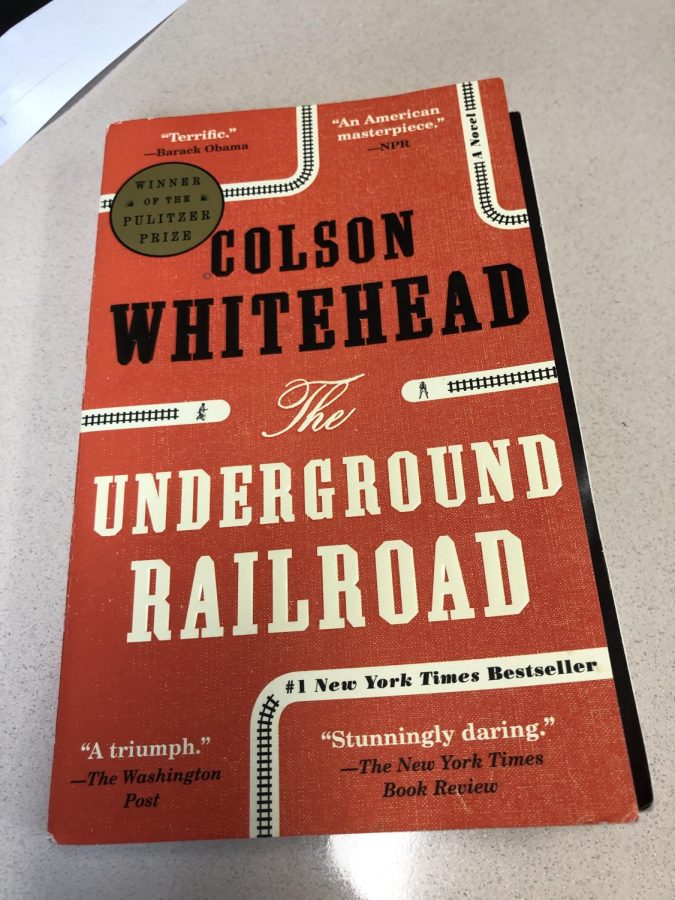AP 11 Continues Exploration of Race with “Underground Railroad”
The AP 11 English class is continuing their yearlong exploration of race in America, through its portrayal in literature.
AP 11 English is currently reading The Underground Railroad by Colson Whitehead, a book described by the New York Times as a “potent, almost hallucinatory novel that leaves the reader with a devastating understanding of the terrible human cost of slavery.”
The Underground Railroad tells the story of Cora, a slave girl, who escapes the Georgia plantation where she was born, and slowly moves north, seeing the depth and breadth of America along the way.
The Underground Railroad is not the first of its kind in Williston English classes. It carries on a prevailing theme of the year, of racism and villains. We read The Great Gatsby for example, and contrasted Tom’s malicious, bigoted character, with Nick’s non-judgmental, Tabula Rasa persona.
AP 11 students see the connection between the books. Junior Felix King, connected The Underground Railroad and a book by Ta-Nehisi Coates called Between the World and Me, stating that they’re “similar in the idea of the control of black bodies, for example.”
Juniors in AP read Between the World and Me during first trimester.
The idea he references is a common one in the books his class has read – the idea that black labor, artistic merit, and life is all combined into one “black body,” and commodified, then repurposed to fuel American exceptionalism.
The books that have been read all paint this as an explicitly evil process; from the degradation of the “valley of ashes” in The Great Gatsby to Ta-Nehisi Coates’s assertion that black ambition is crushed by the combination of dangerous lives and faulty schooling, to The Underground Railroad, where the primary villain is entrenched racism itself; both slavery in Georgia and eugenics in South Carolina.
The AP 11 English class has taught Felix that from slavery, the literal forced labor of black men and women, to the present, with the complicated, neo-colonial system, the end goal of exploitation has been constant.
Matt Sawyer, one of the teachers in the English department, who has taught at Williston for 26 years, especially likes “the way Whitehead combines history with fiction. It is interesting to think of how the fictional aspects of the novel comment on our nations racial history.”
Sarah Sawyer, the English Department Head, agrees about the overall quality of The Underground Railroad, and the necessity of it being included in the curriculum. “Anytime you’re studying American literature, you need to have contemporary voices,” she said.
The inclusion of a contemporary voice like The Underground Railroad, especially one that “plays with the timeline,” as Sarah Sawyer put it, can act as a bridge between past injustice and present complacency; it shines a light on the ways in which the past continues to be relevant.
Michael is a junior from Holyoke, Massachusetts. He has seen most of Supernatural. He has been in a lot of concerts and enjoys writing about Art.













